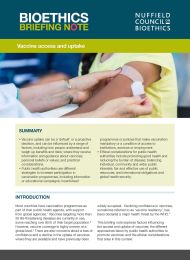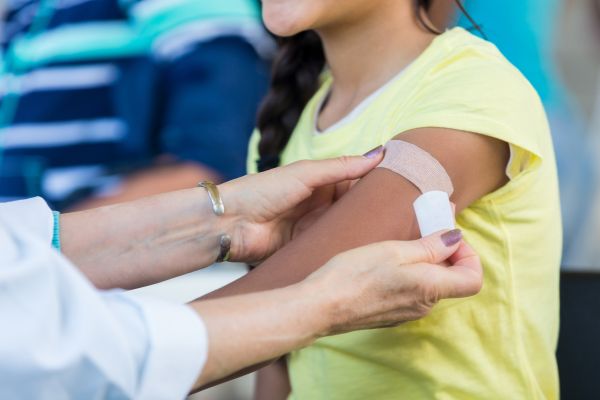Vaccine access and uptake
Policy Briefing
Published 20/04/2021

This briefing note explores factors influencing the access and uptake of vaccines; the different approaches taken by public health authorities to promote vaccines; and the ethical considerations that arise in this context.
Summary
- Vaccine uptake can be a ‘default’ or a proactive decision, and can be influenced by a range of factors, including how people understand and weigh up benefits and risks; where they receive information and guidance about vaccines; personal beliefs or values; and practical considerations.
- Public health authorities use different strategies to increase participation in vaccination programmes, including information or educational campaigns; and incentivised programmes or policies that make vaccination mandatory or a condition of access to institutions, services or employment.
- Ethical considerations for public health authorities include promoting good health and reducing the burden of disease; balancing individual, community and wider public interests; fair and effective use of public resources; and international obligations and global health security.
Project team
Ranveig undertakes research to support the Council’s work and monitors developments in areas of interest to the Council.
Prior to this she was the Communications Officer at the Council, and before that managed communications at the International Action Network on Small Arms (IANSA) and completed a BA in Development Studies and International Relations at London Metropolitan University.








Share